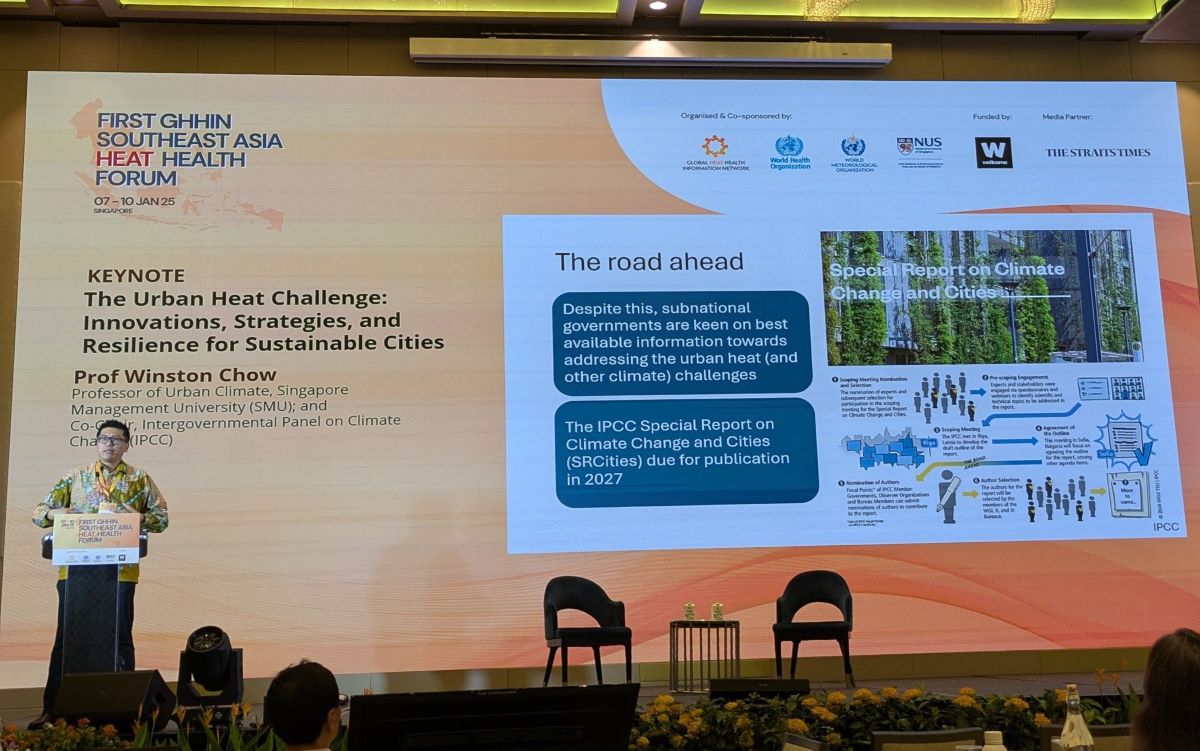Addressing Southeast Asia's Heat Challenge at the Inaugural GHHIN Southeast Asia Heat Health Forum

From Jan 7-10, 2025, Singapore hosted the inaugural Global Heat Health Information Network (GHHIN) Southeast Asia Heat Health Forum, organised by the Heat Resilience & Performance Centre at the NUS Yong Loo Lin School of Medicine, uniting global experts, policymakers, and practitioners to tackle rising heat risks across the region. The forum featured discussions on sustainable and equitable strategies to combat heat stress in urban environments.
Key highlights of the forum include:
✅ The launch of the GHHIN Southeast Asia Hub to drive regional collaboration on heat-health policies.
✅ Deep dives into actionable solutions for addressing heat impacts on health, urban systems, and vulnerable populations.
✅ Discussions on translating climate and health research into accessible insights for policymakers and the public.
🔑 The SMU Urban Institute was proud to be represented by our Urban Fellow, Professor Winston Chow from the SMU College of Integrative Studies, who delivered a keynote titled "The Urban Heat Challenge: Innovations, Strategies, and Resilience for Sustainable Cities." Prof Winston highlighted critical insights from his research at The SULTREE Lab and the Urban Institute, including urban heat island mitigation, the hashtag#CoolingSingapore initiative, and his contributions to the IPCC AR6.
He emphasised that while political and financial challenges remain, resilience-building requires creative policy adoption, engaging local communities, and investing in heat adaptation measures. Prof Winston's insights also reinforced the role of cities as key players in tackling the climate crisis and demonstrated how innovative strategies can pave the way for sustainable urban futures.
👥 Our Senior Manager, Lee Yeung, also participated in the forum as delegate, attending key sessions and joining the Singapore Red Cross-organised tour that showcased on-the-ground heat resilience efforts at Kampung Senang Senior Day Activity Centre and the beneficiaries' home.
The forum also underscored innovative ideas, such as “hybrid cooling” (combining fans with air-conditioning to save energy), national heat action plans, and scalable solutions like shading and misting for vulnerable communities.
Kudos to the organisers, including Prof Jason Kai Wei LEE and his team, and the local and regional media like The Straits Times for capturing the essence of the discussions.
This milestone event serves as a powerful call to action for Southeast Asia and beyond. The Institute remains committed to driving urban resilience research and fostering collaborations that address the region's most pressing climate challenges.